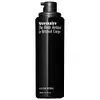What's inside
What's inside
 Key Ingredients
Key Ingredients

 Benefits
Benefits

 Concerns
Concerns

 Ingredients Side-by-side
Ingredients Side-by-side

Water
Skin ConditioningGlycolic Acid
BufferingMandelic Acid
AntimicrobialRosa Damascena Flower Water
MaskingCaprylic/Capric Triglyceride
MaskingGlycerin
HumectantCetearyl Alcohol
EmollientSodium Hydroxide
BufferingCoconut Alkanes
EmollientHydroxyethyl Acrylate/Sodium Acryloyldimethyl Taurate Copolymer
Emulsion Stabilising1,2-Hexanediol
Skin ConditioningCetearyl Olivate
Sorbitan Olivate
EmulsifyingPropanediol
SolventSilica
AbrasiveSilica Silylate
EmollientMagnesium Stearate
Cosmetic ColorantNiacinamide
SmoothingRetinol
Skin ConditioningSh-Oligopeptide-1
Skin ConditioningSh-Oligopeptide-2
Skin ConditioningSh-Polypeptide-1
Skin ConditioningSh-Polypeptide-9
Skin ConditioningSh-Polypeptide-11
Tocopherol
AntioxidantTetrahexyldecyl Ascorbate
AntioxidantBacillus/Folic Acid Ferment Filtrate Extract
AntioxidantCellulose Acetate Butyrate
C13-14 Alkane
SolventC15-23 Alkane
SolventTricaprylin
MaskingAcetyl Glutamine
Skin ConditioningPentaerythrityl Tetra-Di-T-Butyl Hydroxyhydrocinnamate
AntioxidantLecithin
EmollientCitric Acid
BufferingHippophae Rhamnoides Fruit Oil
Skin ProtectingCoco-Caprylate/Caprate
EmollientDecyl Glucoside
CleansingSodium Hyaluronate
HumectantCaprylyl Glycol
EmollientSodium Benzoate
MaskingPotassium Sorbate
PreservativeSodium Carbonate
BufferingSodium Chloride
MaskingEthylhexylglycerin
Skin ConditioningHydroxyacetophenone
AntioxidantCitronellol
PerfumingGeraniol
PerfumingWater, Glycolic Acid, Mandelic Acid, Rosa Damascena Flower Water, Caprylic/Capric Triglyceride, Glycerin, Cetearyl Alcohol, Sodium Hydroxide, Coconut Alkanes, Hydroxyethyl Acrylate/Sodium Acryloyldimethyl Taurate Copolymer, 1,2-Hexanediol, Cetearyl Olivate, Sorbitan Olivate, Propanediol, Silica, Silica Silylate, Magnesium Stearate, Niacinamide, Retinol, Sh-Oligopeptide-1, Sh-Oligopeptide-2, Sh-Polypeptide-1, Sh-Polypeptide-9, Sh-Polypeptide-11, Tocopherol, Tetrahexyldecyl Ascorbate, Bacillus/Folic Acid Ferment Filtrate Extract, Cellulose Acetate Butyrate, C13-14 Alkane, C15-23 Alkane, Tricaprylin, Acetyl Glutamine, Pentaerythrityl Tetra-Di-T-Butyl Hydroxyhydrocinnamate, Lecithin, Citric Acid, Hippophae Rhamnoides Fruit Oil, Coco-Caprylate/Caprate, Decyl Glucoside, Sodium Hyaluronate, Caprylyl Glycol, Sodium Benzoate, Potassium Sorbate, Sodium Carbonate, Sodium Chloride, Ethylhexylglycerin, Hydroxyacetophenone, Citronellol, Geraniol
 Reviews
Reviews

Ingredients Explained
These ingredients are found in both products.
Ingredients higher up in an ingredient list are typically present in a larger amount.
Glycolic Acid is arguably the most famous alpha hydroxy acid (AHA) with tons of research backing its benefits.
It is found naturally in sugar cane but the form used in skincare is usually synthetic for purity and stability.
Glycolic acid removes the top layer of dead skin cells to allow newer and fresher ones to emerge.
AHAs work by breaking down the structural “glue” that holds old skin cells in place. When that buildup is gone, your skin can renew itself more efficiently.
Research also shows glycolic acid stimulates collagen production, helping to firm and thicken the skin over time. This is one of its biggest advantages over other AHAs.
Overall, glycolic acid helps with:
Fun fact: Glycolic acid boosts skin hydration by helping it produce molecules that increase hyaluronic acid naturally.
To work best, glycolic acid products should have a pH between 3-4 (that’s where exfoliation is most effective but still gentle on skin).
The pH and concentration of a product are key to its effectiveness:
It is normal to feel a slight stinging sensation when using glycolic acid. This usually fades as your skin adjusts.
Because glycolic acid has the smallest molecular size in the AHA family, it can penetrate deeper, which enhances its effectiveness but also makes it more likely to irritate sensitive skin.
If your skin is very sensitive or prone to rosacea, glycolic acid may be too strong; in that case, try milder options like lactic acid or a PHA instead.
Recent studies suggest glycolic acid might even help protect against UV damage. But don’t skip sunscreen! Freshly exfoliated skin is more sensitive to the sun.
Glycolic acid is a skincare superstar. It smooths, brightens, hydrates, and firms the skin. Unless you’re highly sensitive, it’s well worth adding to your routine.
Read more about some other popular AHA's here:
Learn more about Glycolic AcidRetinol is a gold-standard ingredient for anti-aging. It is a form of Vitamin A and belongs to the class of retinoids that also includes tretinoin.
Why is retinol famous?
It has the most scientific studies backing up its skin benefits out of all the non-prescription ingredients.
Retinol is proven to:
This is why retinol is effective at removing wrinkles, fading dark spots, treating acne, and reducing the appearance of pores.
Studies show retinol is less effective when exposed to UV. Be sure to look for appropriate packaging to keep your retinol potent (similar to Vitamin C).
Using retinol or any retinoids will increase sun-sensitivity in the first few months. Though studies show retinoids increase your skin's natural SPF with continuous use, it is best to always wear sunscreen and sun-protection.
We recommend speaking with a medical professional about using this ingredient during pregnancy.
Retinol may cause irritation in some people, so be sure to patch test. Experts recommend 'ramping up' retinol use: start using this ingredient once a week and work up to using it daily.
Read about Tretinoin
Learn more about Retinol